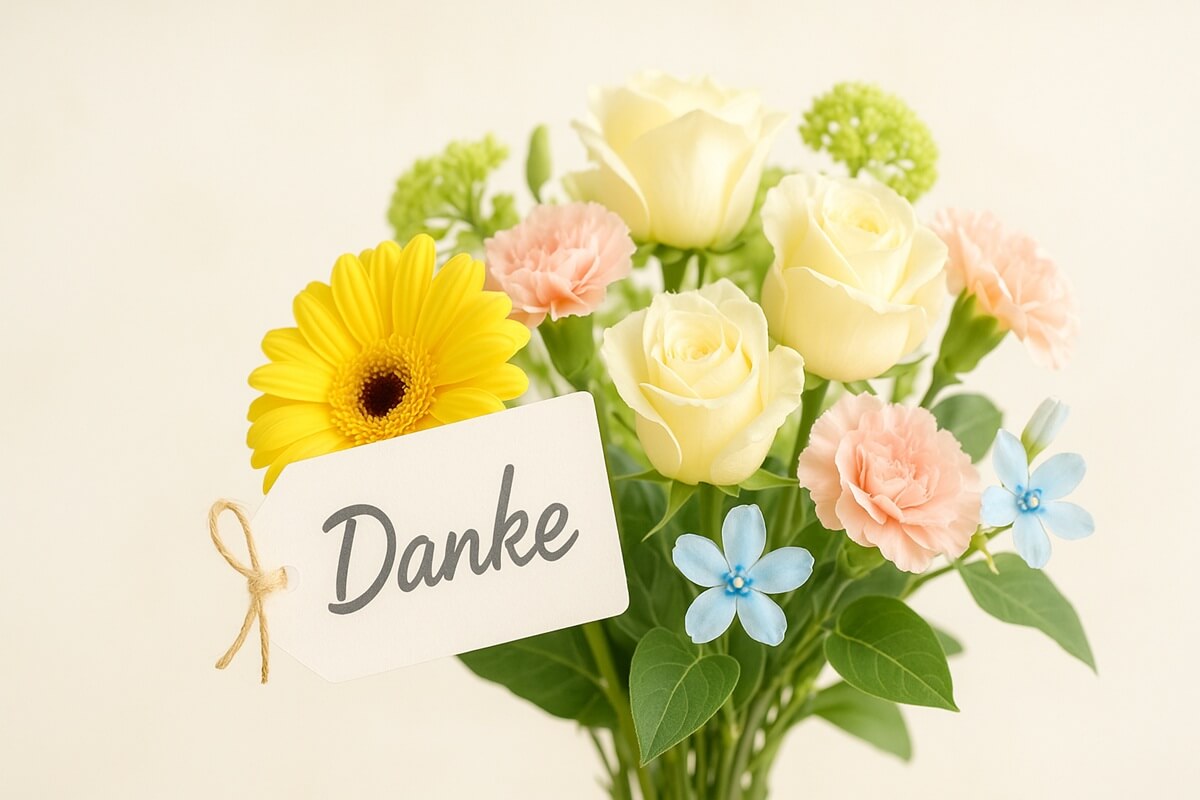
Perhaps you’re planning a trip to Germany, brushing up your skills, or just want to express thanks in a new way. Learning how to say “thank you” in German is always worth it—and good manners matter.
Here’s how to say “thank you” in German—and when to use each one.
1. Danke – The Simple “Thanks”
Pronounced: DAHN-kuh
It’s your default word. Use danke in nearly any everyday situation:
- Someone opens a door for you? Danke.
- The cashier gives you your change? Danke.
- A friend passes you the salt? Danke.
Easiest. Friendliest. Most universal.
2. Danke schön / Vielen Dank – A Bit More Polite/Emphatic
Danke schön (“thank you kindly”) and vielen Dank (“many thanks”) add a notch of politeness or warmth.
Use when:
- Thanking someone for something helpful or thoughtful
- Wanting to sound a bit more polite or respectful
- Addressing someone you don’t know very well
Examples:
- Danke schön für Ihre Hilfe. (Thank you kindly for your help.)
- Vielen Dank für das Geschenk! (Many thanks for the gift!)
Polite without sounding stiff—you’ll hear and use these often.
3. Herzlichen Dank / Ich danke Ihnen – Formal or Sincere Thanks
These phrases strike the right note in formal contexts—writing a thank-you note, speaking with a coworker or professor, or in other professional settings.
- Herzlichen Dank = Heartfelt thanks
- Ich danke Ihnen = I thank you (formal “you”)
Use when:
- You want to show extra appreciation
- More respect is in order (professional emails, public speaking, etc.)
4. Danke dir – Thanking a Friend (Informal)
This is less formal. Danke dir (informal “you”) emphasizes the person you’re thanking—great for friends or family:
Danke dir – das war echt nett! (Thanks—that was really nice!)
5. Casual Variants and Slang
People often shorten it:
- Danke dir! → Danke! (shorter and neutral)
- Tausend Dank! (A thousand thanks!)
- Mega danke! (Super thanks! — slangy and casual)
These are fine with friends; skip them in formal situations.
6. How to Respond to “Danke”
It’s not all about giving thanks—you’ll need to reply, too.
Common replies:
- Bitte. – You’re welcome. (Most common)
- Bitte schön / Bitte sehr. – You’re very welcome.
- Gern geschehen. – Glad to help.
- Gerne! – With pleasure! / Gladly!
- Kein Problem. – No problem. (Informal)
Final Tip
Don’t overdo it—say thanks when it makes sense, and choose a form that fits the situation. You don’t need to be fluent to make a good impression. A plain danke does wonders.
Quick Recap:
| German Phrase | Meaning | When to Use |
|---|---|---|
| Danke | Thanks | Everyday use |
| Danke schön / Vielen Dank | Thank you kindly / Many thanks | More polite or appreciative |
| Herzlichen Dank / Ich danke Ihnen | Heartfelt thanks / I thank you | Formal, sincere, written thanks |
| Danke dir | Thanks (informal) | Friendly, casual contexts |



